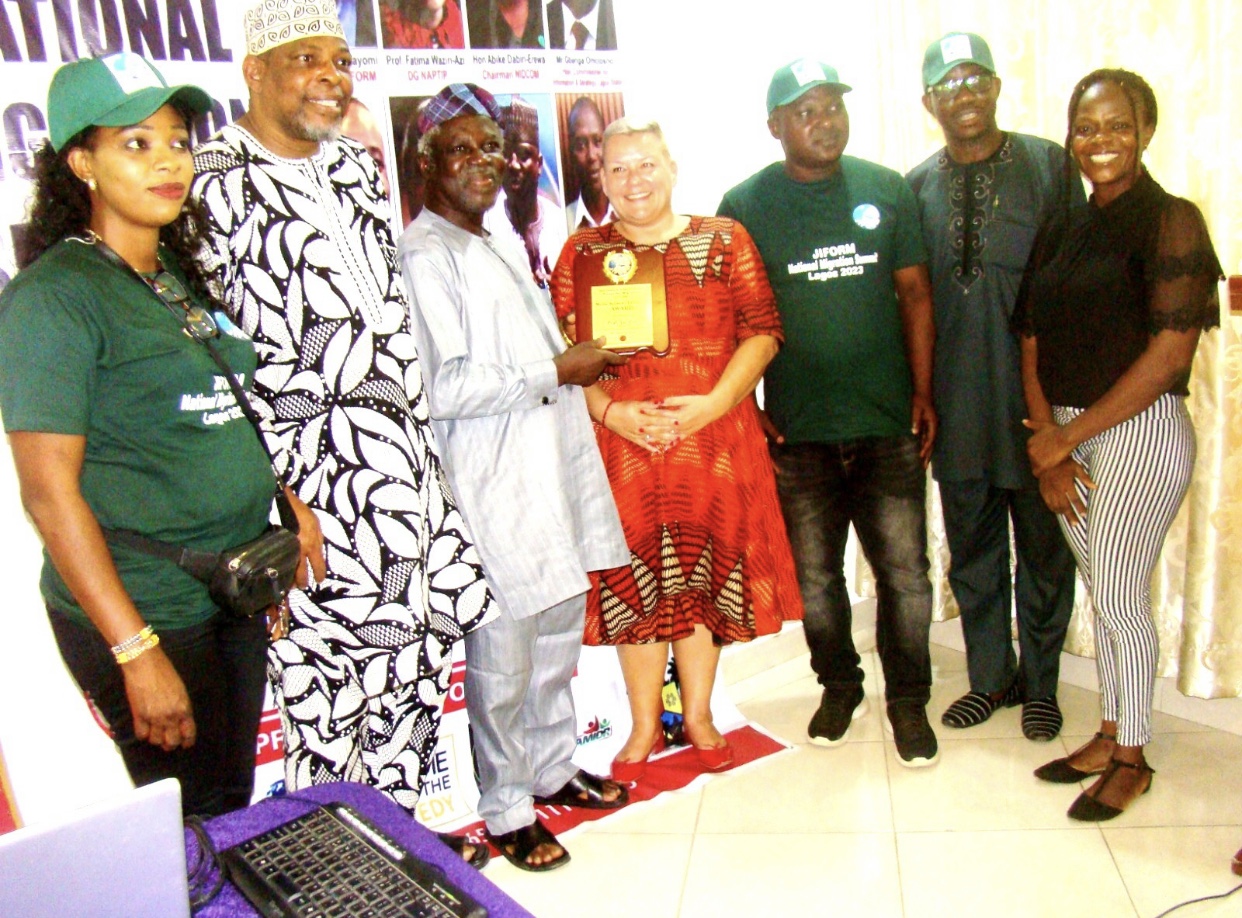Headline
Rally Against Irregular Migration At JIFORM Summit, Giz Pushes For ‘Japada’

The maiden National Summit on migration on Thursday in Lagos organized by the Journalists International Forum For Migration (JIFORM) ended with an appeal and varied recommendations against irregular migration.
In his opening remark, Dr Ajibola Abayomi, the President of the JIFORM with over 300 journalists across the continents covering migration urged the government to address both the push and pull factor fueling irregular migration human trafficking by improving the enabling environment to provide jobs, security, education and other social amenities to the citizens.
He said the event would continue to serve as an annual event to encourage capacity building for the media and other stakeholders on migration matters. Wale Akodu, an Assistant Director from the Lagos State Ministry of Information and Strategy while welcoming the participants called on the media to do more to dissuade the minds of the Nigerian youths from the option of irregular migration.
Several agencies raging from the National Agency for Prohibition of Trafficking In Persons (NAPTIP), Nigerians in Diaspora Commission (NiDCOM), Nigerian-German Center for Jobs, Nigeria Police Force, and Reintegration (Giz), Network Against Child Trafficking, Abuse and Labour (NACTAL), Nigeria Police Force academic and others made inputs during the summit.
Delivering a keynote address on intervention of the NAPTIP on human trafficking, the Director General NAPTIP, Professor Fatima Waziri-Azi who was represented by Mrs Comfort Modupe Agboko, the Zonal Commander of the agency in Lagos said advised Nigerians to shun desperate attempts to relocate abroad.
She expressed the readiness of the NAPTIP to work with the JIFORM and other organizations to stem the tide of human trafficking through exchange of quality information with other strategic means.
The guest lecturer, Professor Lai Oso, from the Lagos State University while appraising migration trends and dynamics, recommended integrated communication process to tackle the migration menaces and charge the media to report more positive stories about the nation.
“Irregular migration means several things in different parts of the country. In addressing the issues we need an integrated communication process that accommodates multiple strategic and deliberate communications to reach different classes of Nigerians” he said.
Sandra Vermuijten, the Team Leader of the Nigerian-German Center for Jobs and Reintegration (Giz) said Nigerians should be encouraged to substitute ‘Japa’ for ‘Japada’ which means returning back to base to exploit the opportunities back home instead of being stranded abroad.
She said the Giz was ready to continue to work with the government and other relevant organizations to train and equip Nigerians for job opportunities. “We implement a 360 degree approach to migration – that means that we support both those who want to travel and those that want to come back. We provide information on regular migration and on the risks of irregular – not illegal – migration.
“Once abroad, thousands of Nigerians are being told to return, because they have no legal right to be there. Many arrived irregularly and applied for asylum. However, as Nigeria is not at war and the government is not systematically persecuting citizens, Nigerians are often not eligible for asylum” she added.
Abike-Dabiri Erewa, the Chairman of NiDCOM represented by Abdur-Rahman Balogun, the head of the media unit hailed the contributions of the Nigerians in Diaspora to the economy but was quick to admonish Nigerians to be of conduct abroad.
The NiDCOM boss counseled that every Nigerian willing to travel abroad should endeavour to get the right documentation and be of good behavior to save the Federal Government from spending huge money on those being deported.
The President of Network Against Child Trafficking, Abuse and Labour (NACTAL), Mr Abdulganiyu Abubakar represented by the National Secretary, Mrs Ijeoma Dawn Olatubosun, called for effective collaboration between the government and civil society groups to reduce incidence of human trafficking.




 Davido's Net Worth & Lifestyle
Davido's Net Worth & Lifestyle 
